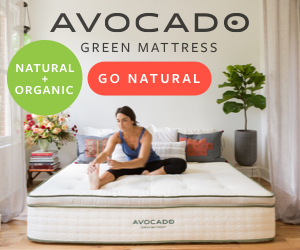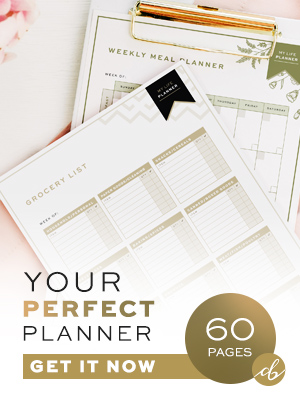We went down to a smaller trashcan where we live in an order to help reduce our wasteful habits. It's amazing how many items you buy at the store come in so much over-packaging. You buy a box that contains a package of smaller individually-wrapped packages. Why? Even before we started being minimalist in the SNS household, we noticed how much over-packaging certain products come in. And the harsh reality is that most of the over-packaging of products can't be recycled.
It's been a change in getting used to recycling most everything we bring out of our home. Our recycle bin is a lot larger than a normal trashcan, but I enjoy seeing the recycle bin filled to the top with only a small amount in the regular trashcan. When we first moved into the home that we live in now, even though it's a rental, we cleaned up a lot of trash and debris in the yard. There was even a rather large pile of asbestos shingles that had to be disposed of as hazardous waste, and a buried chicken wire fence that took months to dig up completely and dispose of properly. Being in a rental house, those items were not our waste, but we are so glad we disposed of things and have a yard that beams with charm and is environmentally sound. Now our yard contains only items that are either recyclable, or will move with us eventually; e.g. Terra cotta pots, gazebo, tomato cages. But it took time to clean it up in an environmentally-friendly way and it wasn't easy. Everything that left the yard, at that time, was considered waste. Some hazardous waste. Of course, that was 10 years ago and our focus has changed completely when it comes to waste going out of our home, but thinking back on how we were then compared to now, and I am so happy with how far we've come with being accountable for what we throw away in waste.
Being a minimal household the one thing that we have to always keep in mind, bringing items/food packages/beauty products/etc. into the home, will always need to be taken out of the home one it's used up. Bulk buying may cost a bit in the start, but overall, if you are going waste-free and minimal, it really is the best approach. We made the initial purchase of our shampoo at the local co-op and go back and refill the same bottle once it's empty. In turn, no waste. We do the same with our flour, sugar, brown sugar, rolled oats, chocolate/candy jar, and our dog and cat food containers. The only waste we try to bring into our home is products that have been made from recycled material and can be recycled once again. We still have some work to go with our own ways, but one thing we have completely eliminated, and I can say we are 100% on this, is getting rid of plastic containers. Storage container, plastic packaging, hard plastics, etc. It took us about a year to completely get rid of these, but the overall satisfaction of it now, it seemed well worth the effort. And just for the record, I feel the same way about silicone too. Even though plastics and silicone can be recycled, I don't feel it suits out waste-free lifestyle at the moment. There are no know health risks with silicone, yet, but the long term of silicone use worries me. We prefer glass, glass container, and reusable glass canisters for our bulk items. But then again, most of these tips fall under the minimal living category too.
Here are some tips on how we are going waste-free in our home:
• Get rid of the waste at the source. Go through cabinets and get rid of anything that isn't biodegradable and either donate them, or take them to a facility that will dispose of them correctly.
• Refuse to receive your takeout in plastic/Styrofoam containers. And the best way to avoid this, don't get take out. If you are at a restaurant, bring your own container to take your food home in.
• Avoid water bottles, cans, and glass drink containers that can't be recycled. (juice, gatorade-shouldn't drink these anyway-the sugar content is rather high)
• Don't purchase plastic. Meaning, don't purchase plastic utensils, plates, or bowls. Glass is best, even on a picnic, glass is great! You can wash and reuse glass over and over again. And absolutely refuse plastic bags at the grocery store, no matter how much the cashier pushes that they recycle them. Use your own reusable shopping bags or baskets. Join "Plastic Free July" this summer too!
• Avoid purchasing products that over-package their products. If your favorite item has over-packaging and you feel that you can't live without it, write the company about your concerns. Let them know how much you love their product, but wish they would find a more environmentally-friendly way of packaging. Most companies will listen. And do yourself and everyone else a favor and stay away from big-boxed-stores. Buying in bulk that way isn't going waste-free at all.
• Cut back on paper waste inside your home. Printing, toilet paper, get rid of paper towel usage completely, baby wipes, and other paper goods. Look for these same products in a recyclable option. Most local co-ops, and some specialty grocery stores carry better options that can help you go waste-free.
• Don't waste food. Get the right amount for your hunger at the time and use portion control. The biggest part of the obesity crisis is the fact that people overeat for whatever reason. Self control with portions is the biggest step and teach your kids proper portion control. (hint: start a garden and grow your own food portions; more on this later)
These are just a few ways to help get your started, but keep in mind that going waste-free shouldn't just be limited to product waste, or container waste. Going waste-free means not wasting water, electricity, natural gas, clothing, or even time.
1. Wash your clothes with the right amount of water for each load. Small loads, smaller water, etc.
2. Shut lights out, turn electronics off when not using, and most of all, don't charge phones, or other items overnight. Turn your computer off when not in use and unplug your microwave, TV, etc when you are using them.
3. Don't run your heater constantly. Grabbing a warm sweater or blanket can also help keep you warm, and in the winter, wear socks!
4. Biggest household waste of all, clothing. Mend clothing when it's torn, and donate ones that are still in good shape so someone else can get use out them. To avoid clothing breaking down in the first place, buy quality clothing. There is the good and bad of clothing and the badly-made ones may save you money at first, but in the long run, you're going to be paying more. Spending money on good-quality made clothing will be the one thing that will help you cut down on clothing waste.
5. Lastly, don't waste your time on things that don't matter. It seems a far-fetch to add this to a waste-free post, but the one thing a lot of people wish they had more of is time. Don't waste yours on things that you can't control, and people you can't fix. Fix yourself and live a life you can be proud of each and every day!
 |
| source |


































No comments:
Post a Comment
Thank you so much for commenting. I will read over your comment before publishing to make sure your comment aligns with the safety and positive environment I try to keep at this space. If you have further questions, please reach out to me at (mcwilkerson1977@yahoo.com). Thank you for understanding. While you wait, please check out the rest of my blog for content that may interest you. There's a lot of great things here and I look forward to connecting with you.